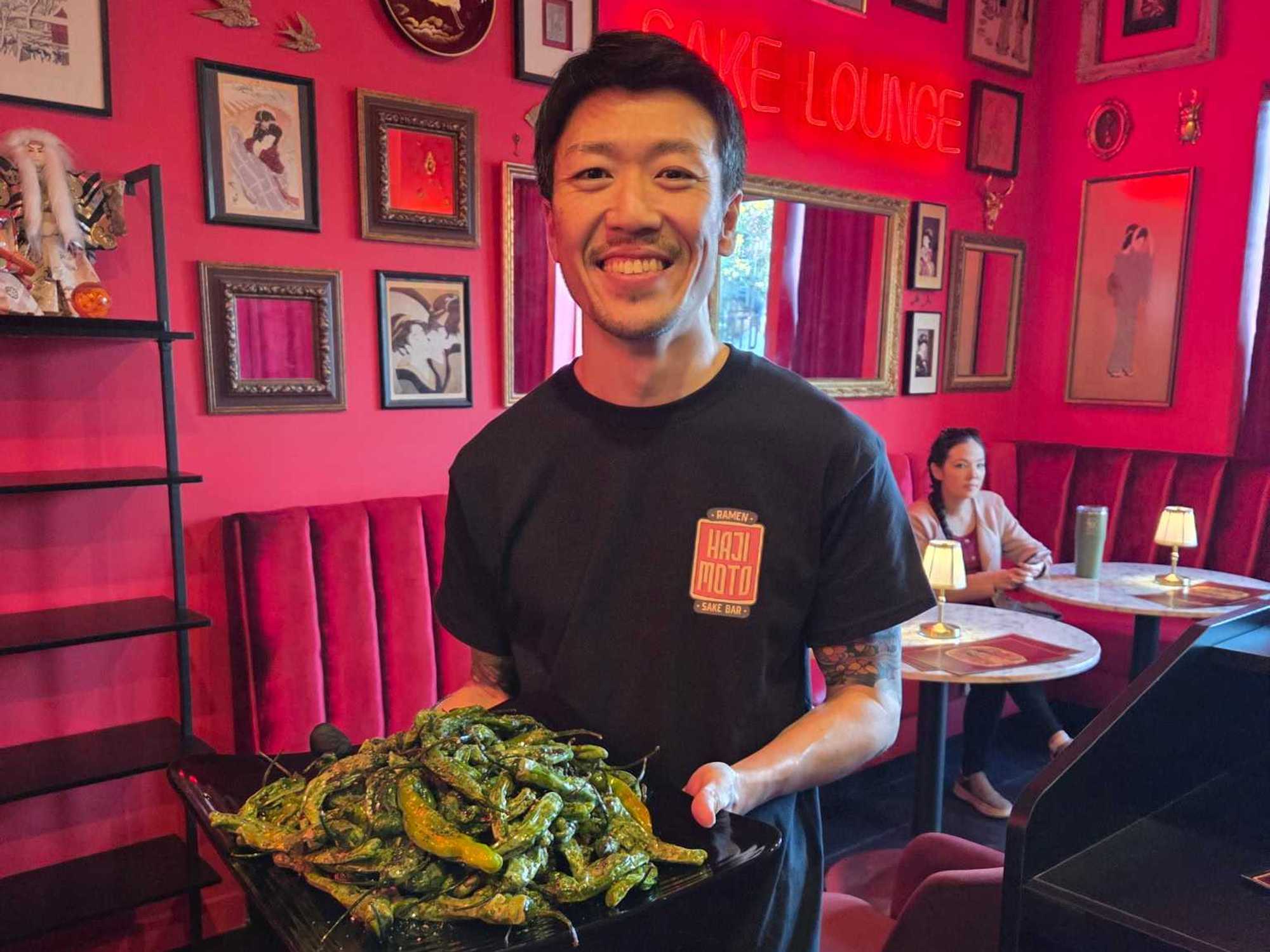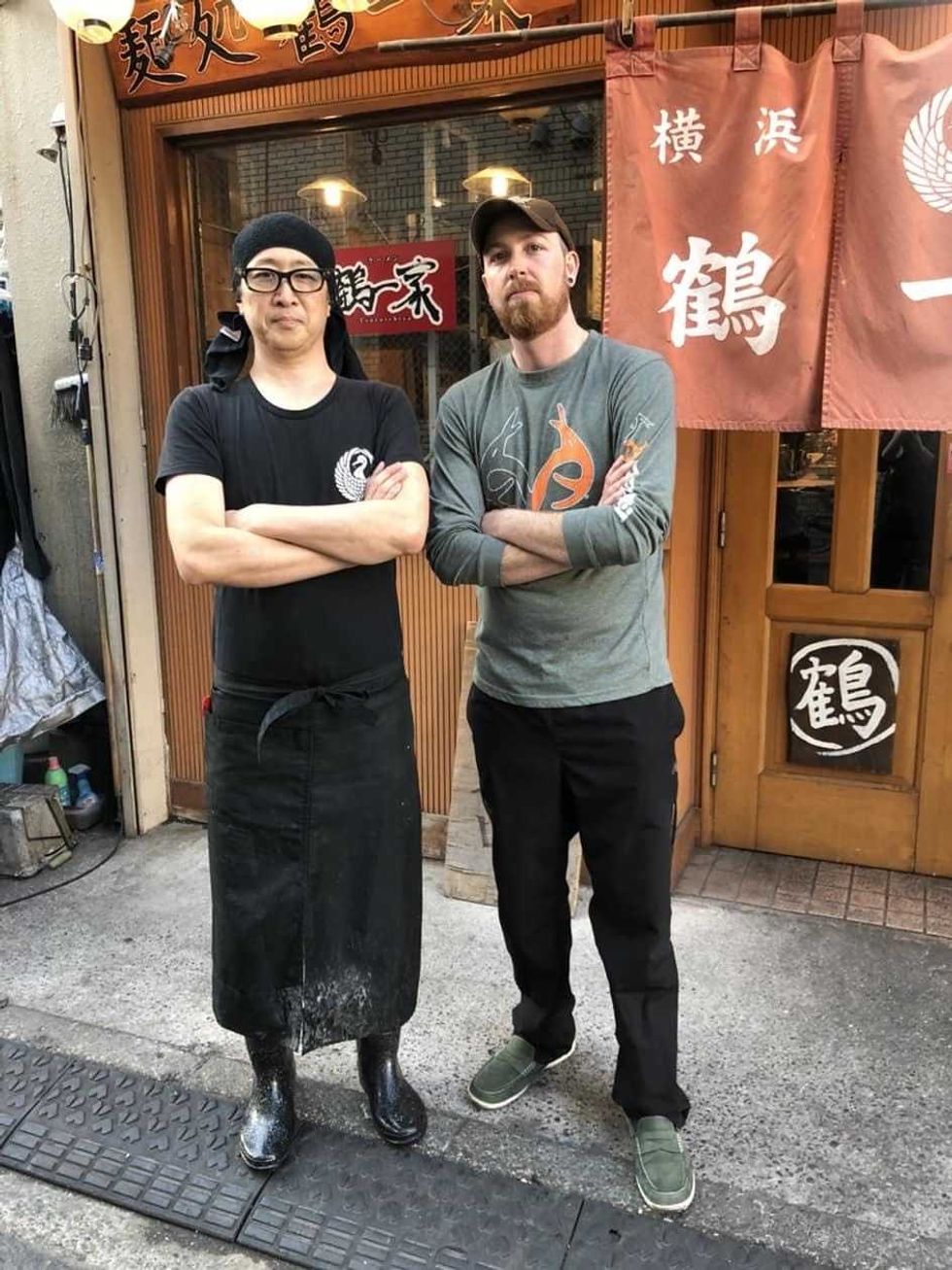An Uncertain future
Austin restaurants must pivot from feeding the public to feeding employees during shutdown

One of the most rewarding parts of working in a restaurant is the daily pre-shift buffet, affectionately known as “family meal.” Workers come together as a team to eat and relax before a busy night on the line or in the dining room, to first serve each other before they serve the public. Right now in Austin, with business at a standstill and grocery shelves picked over, family meal could become one of the only things keeping many hospitality workers afloat.
On March 17, the City of Austin implemented strict regulations on restaurants and bars, closing many establishments while forcing others to pivot to curbside pickup and delivery models. It’s also led to dramatic lay offs, a stark reversal of fortune for an industry that was — by most measures — thriving just two weeks ago.
“Everyone who has ever worked in hospitality has, at one point or another, been one paycheck away from financial ruin,” said Hannah Yerby, chef de cuisine at Vixen’s Wedding, in an Instagram post. “It’s a scary feeling that people in our business are feeling collectively right now.”
In an industry dedicated to serving people, some Austin hospitality leaders are stepping in to fill a void not yet addressed by slow-moving federal rescue packages. Among the many anxieties facing laid-off industry workers, food security is of paramount concern.
To address these worries, Austin restaurants like Emmer & Rye, Fixe Southern House, and Odd Duck have committed to providing family meals for their employees throughout the crisis. Other restaurants are turning their unsold inventory into meals to feed their staff.
Chef Yerby has filled the walk-in at Vixen’s Wedding, which has decided to forego the prevailing curbside model adopted by many of their colleagues, with portioned out to-go meals for furloughed workers to take home.
Sisters Reyna and Maritza Vazquez, co-owners of local taco empire Veracruz All Natural, have closed all five of their locations to shift focus towards the health and well-being of their employees.
“We are fortunate that Maritza also runs a produce company, Restaurant Box, that is one of several suppliers for Veracruz All Natural,” the restaurant group said in a statement. “Now, instead of stocking the restaurants and food trucks, we will be stocking the kitchens of our employees and making sure they have meals until this current health situation abates.”
Restaurant suppliers around Austin are also feeling the strain — and stepping up to help. Julian Choi, co-owner of Minamoto Foods, which supplies high end seafood to the likes of Uchi, Lucky Robot, and Red Ash, found their warehouses filled with over 850 pounds of fish they can’t sell.
“We are forever indebted to [Austin’s culinary community] for all of our growth, successes, and stability,” the company said in an Instagram post. “It’s our turn to feed the guys that have been feeding Austin.”
Minamoto has set up a distribution center at the warehouse to give away its premium seafood to industry workers in need.
“It doesn’t matter if you’re a manager, chef, busboy, cook, or anybody from any restaurant,” says Choi, who notes they have scheduled nearly 50 pickups for Friday, and will be sending any leftover surplus to their restaurant partners “to distribute amongst staff and to subsidize family meals.”
Some are finding ways to stretch their resources and keep their staff on payroll. Beloved smoothie and lunch spot The Soup Peddler has committed to staying open for pickup and delivery as long as they can, but is also taking its employee support a step further.
“Before COVID-19, The Soup Peddler already provided ... staff with 40-80 hours of paid time off,” the company said in a statement “As of last week, [we] offer unlimited sick leave and a $50 stipend for staff to purchase home health and cleaning supplies.”
In a stunning show of support for both his employees and the industry community as a whole, Nic Patrizi, owner of the high-end Italian food truck Patrizi’s, has not only kept his truck operating, but he’s finding novel ways to support the community that has supported him and his businesses.
“I committed to giving the 35 or 40 people who work at Patrizi’s, they’re gonna get all of their pay no matter what,” says Patrizi. “So we actually raised their rates from ten bucks an hour … to $15 an hour plus the tips they’ll be getting. Since we’re having less shifts available, that’s how we’re compensating for it.”
Patrizi’s new Cajun concept, Vic & Al’s, was slated to have its soft opening in the coming weeks. Instead, they’ve converted the space into a service kitchen virtually overnight, and are setting up the website infrastructure to begin filling time slots for those in need to come get a hot meal.
“We’ve got a whole kitchen sitting around doing nothing,” says Patrizi. “I’m paying my staff already. Let’s do some good, make some good food, and have a semblance of normalcy.
“Our goal is that, for anyone who is food insecure or out of a job, all these service industry folks who want to feel safe and want really good quality food, we’re gonna open it up and just give away free food to anyone who shows up.”
Patrizi says he wants to have his service kitchen open seven days a week beginning Saturday, March 21, and he foresees his model sustaining indefinitely through the crisis, assuming the donations to cover food costs continue to roll in.
“I want to try and inspire other people to think outside the box,” he says. “And to try and give back to their employees who are the backbone of how they made their money in the first place. To try and jar the system and inspire people to think of other ways to help people out.”
Thinking outside the box is a particular specialty for chef Page Pressley, formerly of Swedish Hill. He’s shifted the focus of his restaurant consulting work to concentrate on helping his industry colleagues navigate these uncharted times.
“The most frequently asked question is how to pivot and how best to manage staff retention for long-term business sustainability,” says Pressley. “What I’m trying to be most helpful with is eliminating any inventory loss through preservation in ways that will either serve the concept long-term, or are monetizable. ... Lastly, how can we continue to be of greater service to our community? What do people need?”
It seems that what people need right now is a sense of security, regardless of their industry.
“Now is the time to prioritize people first,” says Yerby. “Do your part, help where you can, and hold your people close. Metaphorically.”

 Shishitos are a great bar snack.Photo courtesy of Haji Moto
Shishitos are a great bar snack.Photo courtesy of Haji Moto Iwai and Thomspon in Japan.Photo courtesy of Haji Moto
Iwai and Thomspon in Japan.Photo courtesy of Haji Moto